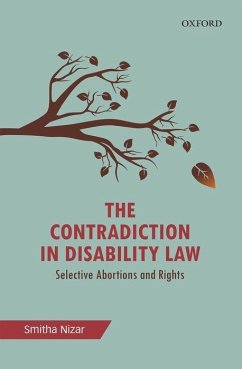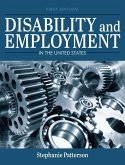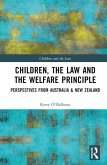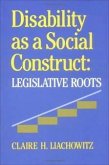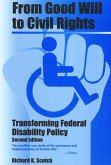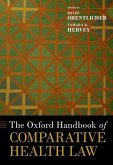While the Indian legislation on prenatal tests, the Pre-natal Diagnostic Techniques Act, 1994, prohibits the use of prenatal tests for sex-selection, it permits the use of these tests to pick out foetuses with disabilities. Further, the Medical Termination of Pregnancy Act, 1971 permits the termination of such lives.Does this mean that persons with disabilities do not deserve to be born as their lives are not worth living? Does disability-selective abortion, in effect, negate the rights of persons with disabilities? Can these interventions continue without breaching disability rights? The author approaches these critical questions by studying the contradiction that exists between disability-selective abortion and disability rights.Analysing the legitimacy of an automatic decision to abort a foetus with disability, this book questions the unproblematic perception towards disability-selective abortions, but without entering the realm of a woman's right to take decisions about her body.
Hinweis: Dieser Artikel kann nur an eine deutsche Lieferadresse ausgeliefert werden.
Hinweis: Dieser Artikel kann nur an eine deutsche Lieferadresse ausgeliefert werden.

